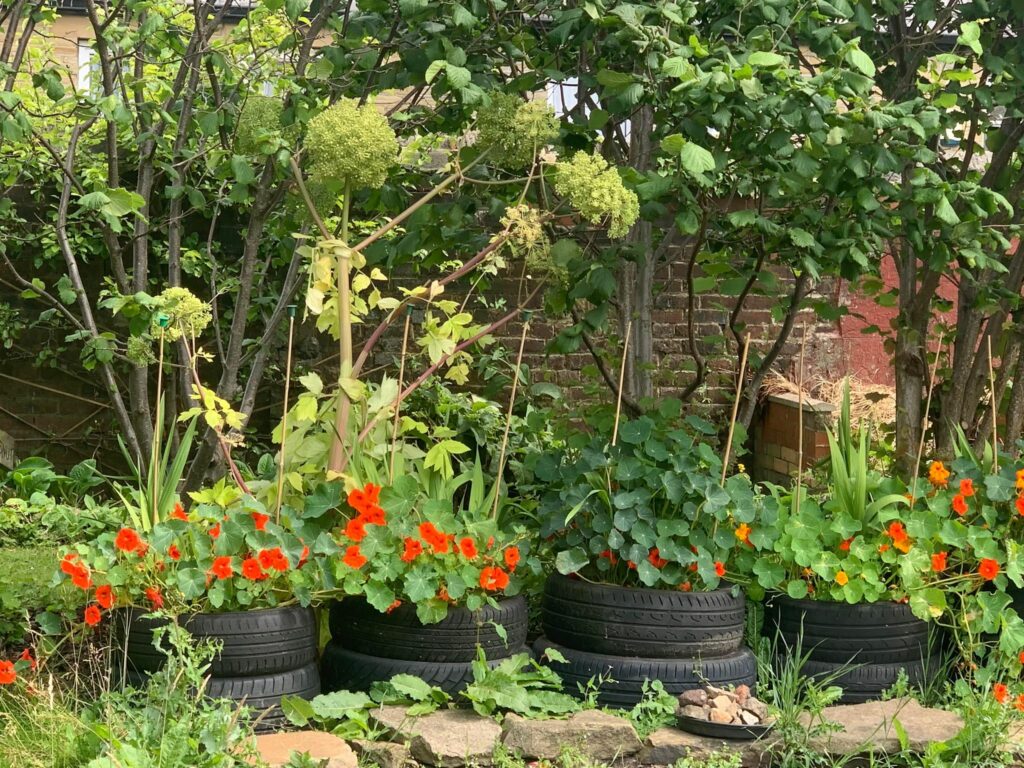Organic September is all about, you guessed it, being organic! From farming to produce, wildlife to growing; it raises awareness of the importance of working with nature, instead of against it. This Organic September we’re celebrating by taking a look at the many benefits organic living can have and how to make positive changes that contribute to a more sustainable future.
The Soil Association campaign sets out to raise awareness of the benefits of organic and how it supports nature and wildlife, as well as protecting the planet. Here at Halifax Opportunities Trust we care deeply about the environment and our impact, both as individuals and as a community organisation. And, with our very own Outback Community Kitchen and Garden that runs on organic principles, it’s a cause that aligns with what we’re all about.
What does being organic mean?
Organic is an ‘agroecological’ farming system that offers many benefits. Organic foods are grown without artificial pesticides, fertilizers, or herbicides. Organic meat, eggs, and dairy products are obtained from animals that are fed natural feed and not given hormones or antibiotics. Natural foods are free of synthetic or artificial ingredients or additives
So, for many of the foods we eat, their source and the way they are grown is what makes them organic. This often means looking at the environment in which crops grow and the sources of the food animals are fed.
What’s so great about being organic?
There are many benefits for being organic. Ultimately, we receive high quality produce thanks to the hard work, care and attention organic farmers provide. Moreover, research has found significant nutritional differences between organic and non-organic produce. Some key benefits of organic include:
- It protects the planet
With no artificial fertilisers used in the growing and farming of produce, risk of environmental pollution is lowered. This also helps reduce greenhouse gas emissions by restricting the use of manufactured chemical fertilisers and pesticides, which come from burning fossil fuels.
- It improves animal welfare
Being truly organic means ensuring all animals reared for meat and animal products have a good life. Organic farming standards mean that animals are truly-free range, encouraged to express their natural behaviours and live in the most natural conditions.
- Wildlife can thrive
41% of Britain’s wildlife species have declined since 1970, and more than 1 in 10 are currently facing extinction. This is partially down to intensive farming practices, especially pesticide use.
Organic places and spaces offer sanctuary for wildlife, such as bees, birds and butterflies. On average, plant, insect and bird life is 50% more abundant on organic farms, and there are around 75% more wild bees on organic farms.
- People are healthier
The food we eat has a direct impact on our health. Because organic produce has fewer pesticides, additives and preservatives your exposure is dramatically reduced.
Furthermore, because organic foods do not contain excessive traces of antibiotics, it means we are more likely to respond quicker and better to anti-biotic treatments when necessary. The more sparingly we use antibiotics, the more effective they will remain.
Not only this, but, food is nutritionally better. Many food groups are much denser in vitamins and nutritional goodness when they are from an organic source. For example, organic vegetables have almost 70% more antioxidants than non-organic.
How can we be more organic?
1. Keep track of seasonal fruit and veg. The key to keeping it organic is to ensure your meal plans contain the fruit and veg that is more readily available at the time. Reduce food miles and mix up your meals.
2. Check out your nearest zero-waste or organic store. Swap single-use packaging for reusable containers and buy only what you need. You can re-fill your existing containers with organic produce – just like those from our pop-up shop.
3.Give your garden some colour with bee friendly flowers. Plants and herbs, such as poppies and fennel are great for attracting bees and other local wildlife to your yard, allotment or window box.
4. Volunteer at your local green space. Do you know where your local green space is? If you’re passionate about organic living, why not build and share your skills through volunteering at your local greenspace, like The Outback?
If you’d like to learn more about organic and sustainable principles, The Outback Community Kitchen and Garden has a wide range of workshops and activities planned as part of the Greener Together project.
Please contact Sarah Waddington for more information on 01422 342552
Information on this blog was sourced from the Soil Association’s website: https://www.soilassociation.org/take-action/organic-living/why-organic/


